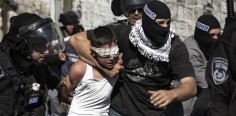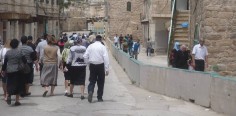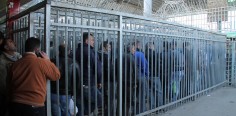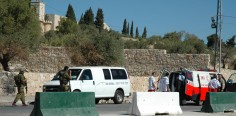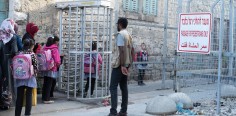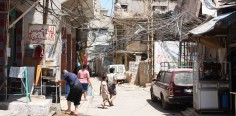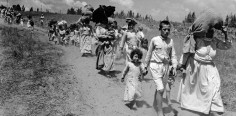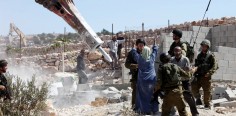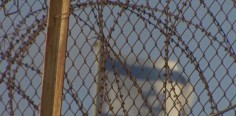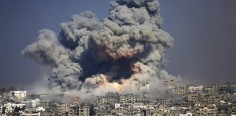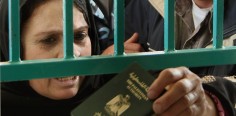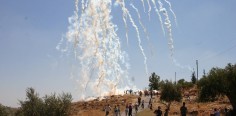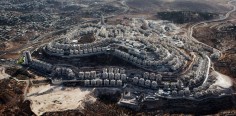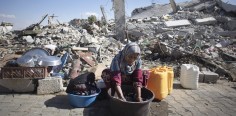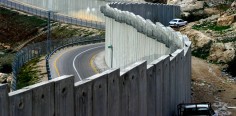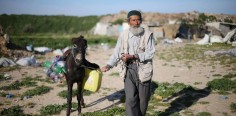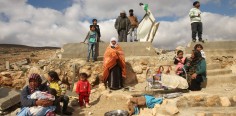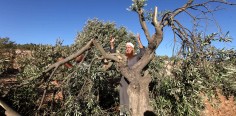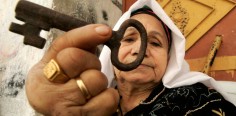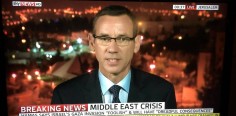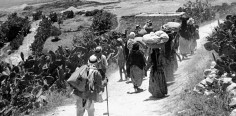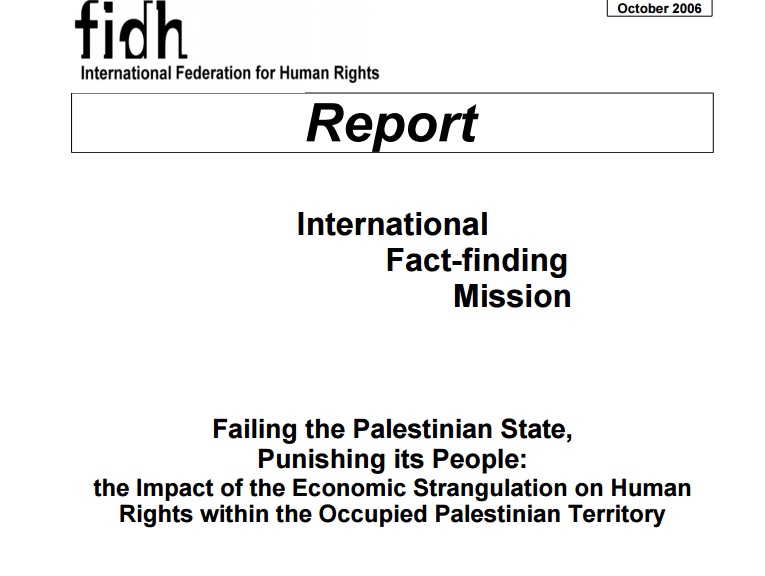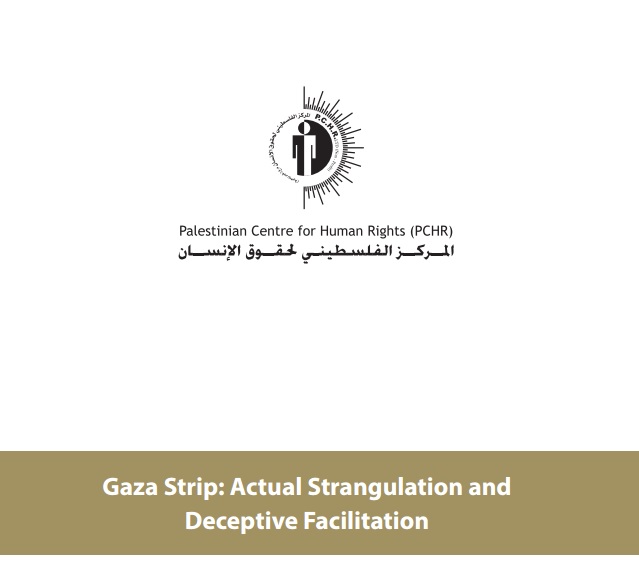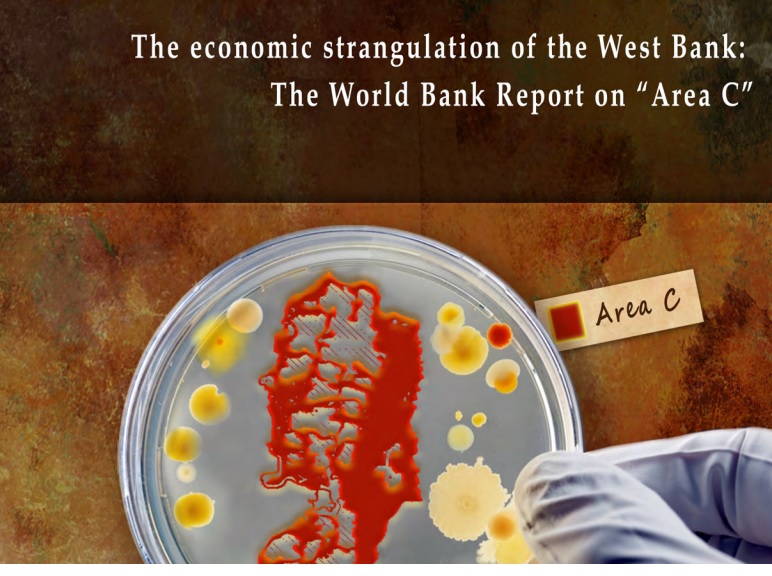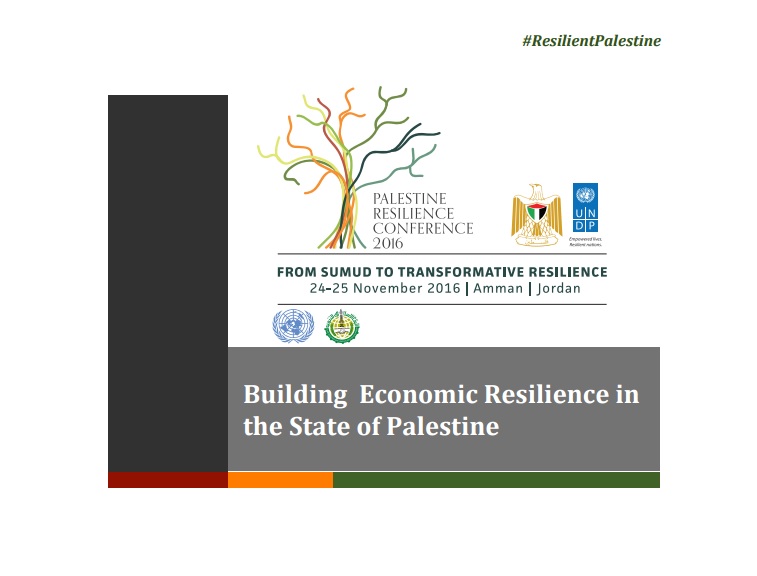ECONOMIC STRANGULATION
ISRAEL'S POLICIES OF ECONOMIC STRANGULATION HAVE CLEARLY - AND ADMITTEDLY - BEEN INTENDED TO FORCE A CHANGE IN BEHAVIOR, AND ARE INSEPARABLE FROM ITS POLICIES OF ASSASSINATION AND KIDNAPPINGS.
SENATOR CHUCK SCHUMER
Building a business isn't easy when you’re living under a military occupation.
Although you need a permit to do anything, permits are controlled by the foreign army.
If they permit you, you need to import raw materials and equipment. But imports are also controlled by that foreign army.
If they let you, your next step is to hire workers. But, you guessed it, the foreign army controls their ability to reach your factory.
If you have any foreign business partners or consultants, it’s the foreign army that decides whether they can visit.
And, after all of this, the foreign army can shut down your ability to export any time it chooses.
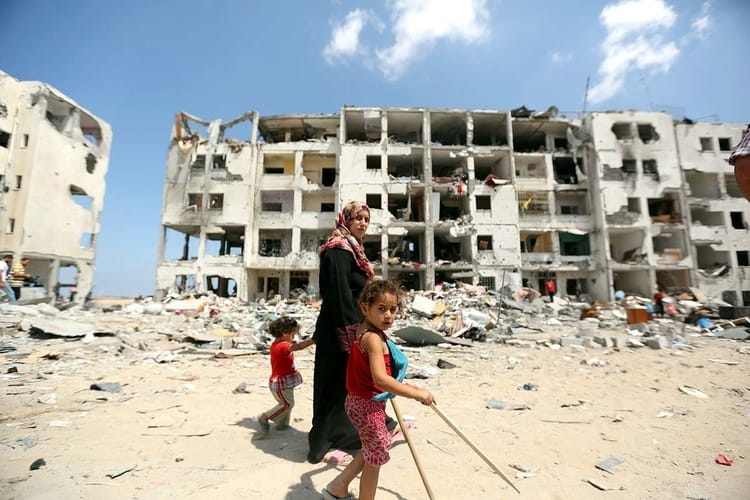
These are just a few of the restrictions faced by Palestinians trying to build their economy under occupation. Since the mid-1990s, GDP per capita has improved only slightly in the West Bank and has declined sharply in the Gaza Strip. The occupation has been the primary reason for the inability of Palestinians to live up to their productive potential.
One major impediment to growth in the West Bank is the fact that approximately 60% of the land is designated ‘Area C,’ which means Israel holds full civil and military control over it. This allows the Israeli government to ban Palestinians from building or farming on it or using its natural resources such as water, stone quarries, or touristic sites and scenery. Currently it is extremely difficult and rare for a Palestinian to obtain an Israeli permit to build a structure or well on this land, where the Israeli government has uprooted over 2 million trees—mostly olive groves—since 1967. This includes most of the Jordan Valley, including the West Bank’s Dead Sea coast line and its minerals, salts, and tourist sites.
Another is the fact that the Israeli government controls whether or not the Palestinian Authority can receive its own tax revenues. Israel thus can leave the municipalities of the West Bank insolvent at a moment’s notice. Teachers, sanitation workers, nurses, and public officials have been left without incomes for months at a time due to Israeli withholdings.
More than 400 checkpoints, roadblocks, barriers, and now the Wall divide the West Bank into numerous ‘cantons’ that further limits Palestinians access to their agricultural lands and water. They also prevent workers from reaching jobs in a timely and efficient manner and can make it difficult or impossible for farmers to transfer their produce to nearby markets before it spoils, significantly decreasing farmers’ earnings while raising the price of food.
Israel has full control over all borders surrounding the Palestinian territories, other than a small border between Gaza and Egypt, which the undemocratic regime frequently seals. Permits to import and export goods must be obtained from Israel, and these are subject to ever-changing and arbitrary delays or denials. For some time in Gaza, the large range of forbidden imports included jam, chocolate, fruit juice, coriander, textiles, and plastic toys. Meanwhile, lucrative flower and strawberry crops go to waste more often than not due to Israeli closures.
In Gaza, Israeli policies have resulted in ‘de-development,’ defined as the deliberate deconstruction of an economy by a dominant power. From the siege that brings trade and movement to a standstill to bombing campaigns that target homes, farms, schools, hospitals, factories, and Gaza’s lone power plant (leaving many Gazans with only a few hours of electricity per day), it’s not surprising that Gaza has one of the highest unemployment rates in the world at approximately 50%.
In the dairy sector alone, nearly every cow breeding operation in Gaza was damaged in the 2014 assault, leading many to close and further restricting the level of dairy production, which already did not meet the needs of the population. Israel is able to export lower-cost products into the Gaza Strip that compete with Gaza’s smaller-scale or damaged industries. One cheese and yogurt factory in the Zaytoun neighborhood east of Gaza City has been bombed, and forced to rebuild, three times by Israeli forces.
Fishing, once a staple of the Gaza economy, has been decimated by Israeli gunships, which patrol Gaza’s waters and confiscate or fire on Palestinian boats that venture too far past a shifting, arbitrary ‘permitted fishing zone’ between 3 and 9 kilometers off the Gaza coast. This leads to losses in the hundreds of thousands, as the waters farther out offer greater quantities of fish and different varieties. ‘Buffer zones’ along every other Gaza border further restrict Palestinian access to their land and resources. And the hotels along the beaches remain largely empty as the Israeli government rarely allows tourists to enter.
Perhaps most damaging long-term are the restrictions on education that make it more difficult for Palestinians to prepare for and build their future.
Illegal Israeli settlers, meanwhile, build and operate homes, quarries, farms, wells, and businesses continuously in Area C, host tourists at holy sites, travel freely, and can import and export at will with their products stamped ‘made in Israel.’ They enjoy subsidies, highways, infrastructure, and security provided by the Israeli government and the benefit of ‘free’ land, water, and other resources confiscated from Palestinians, plus a captive Palestinian labor pool with few other options in the suppressed Palestinian economy. Revenues from these businesses and raw materials makes the occupation easier for Israel to sustain.
The World Bank estimates that if Israel simply lifted its restrictions on Palestinians building, farming, and developing in Area C in the West Bank, the economy would immediately grow by one-third, or around $3.4 billion. Lifting the siege on Gaza would add further billions to the economy. One can only imagine what the Palestinians could do in their “land of milk and honey” if the remaining restrictions were eased and they were allowed to build and grow as a free people.
The Israeli imports into the Palestinian market are much cheaper and at a much higher quality than Palestinian produce. Although our products are all natural, the Israeli closures and restrictions on the Palestinian economy have brought our businesses down.
Rayan (Palestinian Entrepreneur)I’ve built two 7-floor buildings and I cannot finish them. I don’t have materials, I don’t have apartments to provide to people who bought them, I can’t pay back bank loans. If you ask me, the real reason for this blockade is that Israel wants us to be dependent on humanitarian aid.
Faysal Shawa (Palestinian Entrepreneur)
